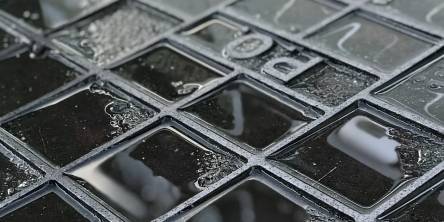Air to Water Residential Heat Pumps: An Efficient Solution for Modern Homes

As the world shifts towards more sustainable energy solutions, homeowners are increasingly seeking innovative technologies to reduce their carbon footprint and energy costs.
One such solution gaining traction is the air-to-water residential heat pump. This system offers an energy-efficient way to heat homes and provide hot water, making it an attractive option for households looking to save on utility bills while embracing eco-friendly alternatives.
How Air-to-Water Heat Pumps Work
At its core, an air-to-water heat pump extracts heat from the outside air and transfers it to water, which is then circulated through a home’s heating system. Even in cold climates, heat can be absorbed from the air.
The pump uses a refrigeration cycle to intensify the captured heat before transferring it into a home’s water-based central heating system, including underfloor heating or radiators.
The technology behind these heat pumps revolves around three main components:
- Evaporator – Captures heat from the air.
- Compressor – Increases the temperature of the absorbed heat.
- Condenser – Transfers the heat to the water in the system.
The cycle repeats as needed, and because the heat pump is primarily moving existing heat rather than generating it from fuel combustion, the system consumes much less energy compared to traditional heating methods.
Advantages of Air-to-Water Heat Pumps
Energy Efficiency
Air-to-water heat pumps can deliver up to three to four times more energy than they consume, making them highly efficient. For every unit of electricity used to operate the pump, up to four units of heat energy are provided to the home.
This efficiency is often measured using a metric called the Coefficient of Performance (COP). A COP of 3, for example, means the system produces three units of heat for every unit of electricity consumed.
Reduction in Carbon Emissions
By relying on air as a renewable energy source, these heat pumps help reduce the carbon footprint of a household. Unlike conventional systems that burn fossil fuels like gas or oil, air-to-water heat pumps use a cleaner process, contributing to the global effort to mitigate climate change.
Year-Round Functionality
Air-to-water heat pumps are versatile, providing not just heating in the winter but also cooling during the summer months. This makes them a comprehensive solution for maintaining optimal indoor temperatures throughout the year.
Cost Savings
While the initial investment for an air to water heat pump system might be higher compared to traditional heating systems, homeowners can recoup the costs through significant energy savings over time.
Many governments also offer rebates or incentives to encourage the installation of renewable energy systems, further reducing the upfront costs.
Compatibility with Underfloor Heating
Air-to-water heat pumps are particularly well-suited to underfloor heating systems. Because they operate efficiently at lower water temperatures than traditional boilers, they are ideal for radiant floor heating, which requires cooler water.
Minimal Maintenance
Heat pumps are generally low-maintenance systems. Once installed, they require annual checks by a professional technician, but unlike boilers, they don’t require fuel deliveries or frequent servicing.
Considerations Before Installing
Before making the decision to install an air-to-water heat pump, homeowners need to consider a few factors:
Climate
While air-to-water heat pumps can operate effectively in cold climates, their efficiency can be impacted in extreme temperatures. Additional considerations may be needed in regions where temperatures frequently drop below freezing, such as combining the heat pump with a backup system.
Initial Cost
The upfront costs of purchasing and installing an air-to-water heat pump can be higher than conventional systems. However, long-term energy savings and government incentives can offset these costs.
Space Requirements
Air-to-water heat pumps require outdoor space for the unit to be installed. Homeowners will need to ensure they have adequate room for the external unit, which can be larger than traditional HVAC systems.
Existing Heating System
For homes with radiators designed for high-temperature heating systems, upgrading to an air-to-water system may require additional modifications. The system is most efficient when used with underfloor heating or modern low-temperature radiators.
Choosing an Air-to-Water Heat Pump Supplier
Selecting the right air to water heat pump supplier is crucial for ensuring that the system meets the specific needs of your home. There are a number of factors to consider when evaluating suppliers:
Product Range
A reputable supplier should offer a variety of air to water heat pump models tailored to different home sizes and climate conditions. Depending on the size of your home and the local climate, you may need a pump with higher or lower output, and your supplier should help you identify the best fit.
Efficiency Ratings
Look for suppliers that provide energy-efficient models with high COP ratings. These units will not only be more environmentally friendly but also offer better long-term cost savings.
Installation Services
Many suppliers offer installation as part of their package. It’s essential to ensure that the supplier provides trained and certified technicians to install the system properly. Proper installation is critical to ensure that the heat pump operates at maximum efficiency.
Warranty and After-Sales Support
Check the warranties offered by the supplier on both the heat pump unit and any ancillary equipment, like control panels or thermostats. Additionally, a good supplier will provide ongoing support and maintenance services, helping to address any issues that arise after installation.
Reviews and Reputation
Customer reviews and the reputation of the supplier are important indicators of quality and service. Research potential suppliers by reading testimonials and checking third-party reviews to ensure you are dealing with a trustworthy company.
Availability of Spare Parts
Consider suppliers who offer a comprehensive range of spare parts. In case of repairs or replacements, it is beneficial to have quick access to parts without the need for long waiting periods.
Environmental Credentials
A growing number of suppliers are prioritizing sustainability. Choosing a supplier with strong environmental credentials ensures that the products you purchase are aligned with broader ecological goals, from the manufacturing process to end-of-life disposal.
The Future of Air-to-Water Heat Pumps
With the increasing emphasis on renewable energy and decarbonization efforts, the future of air-to-water heat pumps looks bright. Innovations are continually improving the efficiency and capacity of these systems, making them more accessible to homeowners around the world.
For example, hybrid models that combine air-to-water heat pumps with solar panels or other renewable sources are already making headway, further enhancing the energy-saving potential.
Moreover, as energy costs continue to rise and more stringent environmental regulations come into place, the demand for sustainable heating solutions will only grow. Heat pumps are expected to play a significant role in the transition toward net-zero homes.
Conclusion
Air to water residential heat pumps represent a compelling alternative to traditional heating systems. Their ability to efficiently provide both heating and cooling while reducing energy costs and emissions makes them an ideal choice for eco-conscious homeowners. By choosing the right air to water heat pump supplier, homeowners can enjoy reliable, long-term savings while contributing to a greener future.
Whether you are building a new home or retrofitting an existing one, air-to-water heat pumps are a smart, forward-thinking investment that aligns with the global shift toward sustainable living.
Similar Articles
A well-maintained yard drainage system is key to preserving the beauty and health of any property. Poor drainage can lead to standing water, soil erosion, and even foundational damage to structures over time.
Keep your seaside home in top shape with these 4 expert tips! Learn about weatherproof materials, smart maintenance, and managing coastal challenges effectively.
Explore the future of roofing! Discover energy-efficient materials, smart systems, and sustainable designs reshaping modern home construction trends.
HVAC stands for heating, ventilation, and air conditioning. These all-in-one systems keep your home comfortable and improve air quality throughout a building. Often used in commercial buildings, HVAC units are increasingly used in residential buildings.
Safeguard your home after storms with timely roof repairs. Detect damage early, choose durable materials, and rely on a pro for lasting protection and peace of mind.
Learn how to balance a clean home and family life with these 6 practical tips to manage clutter, involve kids in chores, and set realistic expectations.
Homeowners are increasingly drawn to farmhouse-style architecture, which creates an inviting atmosphere in their homes that prioritizes comfort and coziness over aesthetics.
Discover transformative home renovation ideas for modern living, with trends, expert tips, and sustainable, budget-friendly practices to elevate your space.
Exterior shutters can make a brick house stand out, adding personality and charm. Homeowners often wonder if installing shutters on brick is a challenge, and it’s a valid concern.









